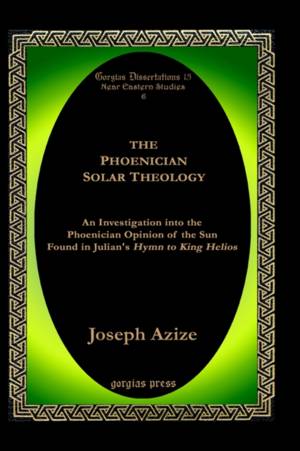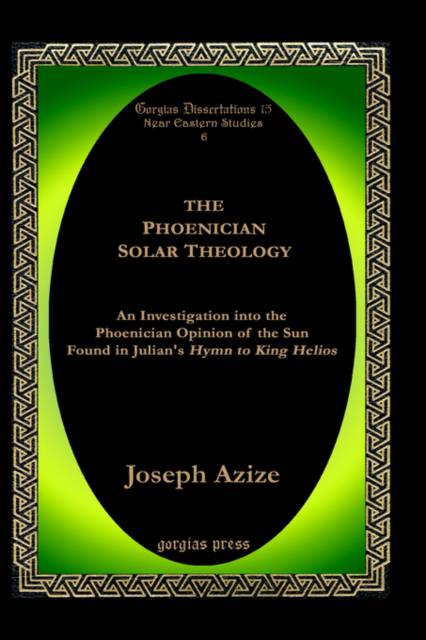
- Retrait gratuit dans votre magasin Club
- 7.000.000 titres dans notre catalogue
- Payer en toute sécurité
- Toujours un magasin près de chez vous
- Retrait gratuit dans votre magasin Club
- 7.000.0000 titres dans notre catalogue
- Payer en toute sécurité
- Toujours un magasin près de chez vous
The Phoenician Solar Theology
An Investigation into the Phoenician Opinion of the Sun found in Julian's Hymn to King Helios
Joseph Azize
195,95 €
+ 391 points
Description
This book, the first study of its kind, contends that an authentic Phoenician solar theology existed, reaching back to at least the fifth or sixth century BCE.
Spécifications
Parties prenantes
- Auteur(s) :
- Editeur:
Contenu
- Nombre de pages :
- 348
- Collection :
Caractéristiques
- EAN:
- 9781593332105
- Date de parution :
- 08-08-05
- Format:
- Livre relié
- Dimensions :
- 236 mm x 161 mm
- Poids :
- 654 g

Les avis
Nous publions uniquement les avis qui respectent les conditions requises. Consultez nos conditions pour les avis.






